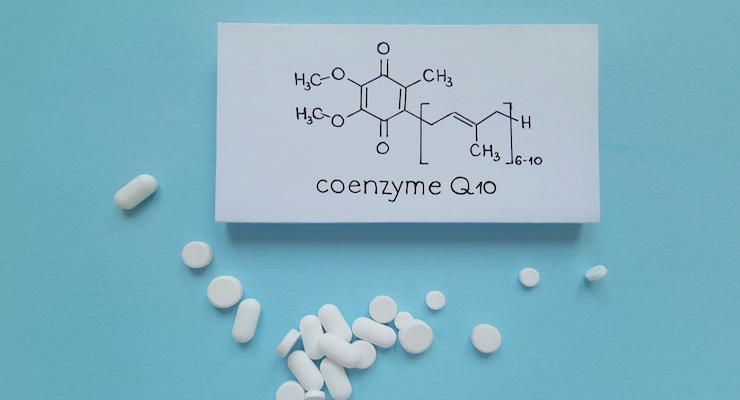Market Updates, Research
Study Suggests Formula Matters in CoQ10 Supplements
Among a small pool of participants, CoQ10 was best absorbed in a water-soluble form.

By: Mike Montemarano

Coenzyme Q10 (CoQ10) is an antioxidant which the body synthesizes naturally, and is found to decrease with age. Additionally, CoQ10 is found to be lower in people with a number of conditions including heart disease.
CoQ10 supplementation has been to be effective in reducing oxidative stress, especially among older consumers, by effectively restoring it to an optimal level for the purposes of cardiovascular health and supporting the aging process. Supplementation appears to be of greater significance to people in older age brackets.
In a study recently published in the journal Nutrients, researchers found that CoQ10 was better absorbed by the body in some delivery formats over others. The randomized, three-period, crossover bioavailability study on 21 adults ages 65-74 were given a single dose of CoQ10 with a one-week washout period. The three different formulations, each containing 100 mg of CoQ10, were used. All of the participants had no medication prescriptions for one month prior to and during the study, and did not consume any food supplements except for vitamin D and calcium for at least two weeks before and during the study.
“Coenzyme Q10 is a substance with relatively high molecular weight—it is also poorly absorbed in the gastrointestinal tract,” the study authors wrote. “The absorption efficiency is also dose-dependent. Additionally, CoQ10 intake with a meal can notably improve its absorption.”
The first week, participants took a dose of syrup containing the water-soluble Q10Vital, considered an investigational product. On week two, participants were given CoQ10 in ubiquinol capsule form (a comparative product), and, finally, participants took ubiquinone capsules (the standard CoQ10 formula) on the third week.
According to the study, the investigational water-soluble syrup caused 2.4-fold higher CoQ10 bioavailability than the standard ubiquinone product. The comparative ubiquinol product was not significantly different than the standard ubiquinone product.
Researchers also determined that there were no significant differences between formulations in the redox status of the absorbed CoQ10. CoQ10 appears in the blood almost exclusively as ubiquinol, even if consumed as ubiquinone.
This confirmed previous hypotheses that slowing down the absorption of CoQ10 in the GI tract would enhance its bioavailability. Further, reserachers determined that a second plasma CoQ10 peak was occurring around 24 hours after the oral ingestion of the investigative syrup formula.


